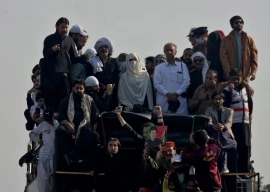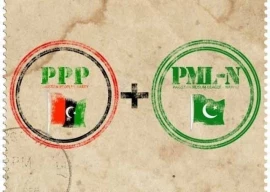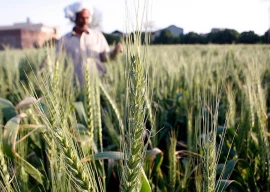
While the Fauji Foundation’s Overseas Employment Services is openly recruiting ex-servicemen for Bahrain’s security forces, it appears that it is not the only player in the field.
The practice of ‘exporting’ Pakistani security personnel to Bahrain has been going on for over 20 years, said a source, who named former Special Services Group officer Javed Latif Kahlon as the man responsible.
“Kahlon is based in Bahrain and enjoys strong ties with its military. He serves as a senior adviser,” said the source. “He left the Pakistan Army after being implicated in the Attock Conspiracy case. He has recruited at least 2,000 Pakistanis to serve in Bahrain’s security forces, and they were the ones who shot at protestors in Manama’s Pearl Square,” the source said, referring to a crackdown in the Bahraini city last month in which seven protestors were killed and hundreds injured.
Analyst Ayesha Siddiqa said Pakistan had been sending troops to other countries since the 1950s and 1960s. “The only variation now is that they (the army) don’t want to risk direct involvement,” she said.
Expatriate Pakistanis form a large part of the workforce in the Gulf countries, holding jobs as doctors, business executives and engineers as well as in the construction sector. Remittances from these expatriates are a crucial part of Pakistan’s economy. Additionally, aid from the region has helped build schools, hospitals and much-needed infrastructure in Pakistan.
Fahad Desmukh, a long-time Bahrain resident and former blogger, says the new recruitment of Pakistanis in the security forces “can only make life more difficult for those hard-working Pakistanis who have contributed to building Bahrain”. Many Bahrainis believe that Sunni Muslims are being recruited to change the Shia-majority demographic.
“On Wednesday, pro-democracy protesters at a rally were chanting ‘The police are Pakistani,’ highlighting the fact that they are viewed as mercenaries,” he said. “In the past, the presence of Pakistanis in the security forces has been the cause of xenophobia towards civilian Pakistani migrant workers, and the hiring of more could make the situation worse.”
Many Pakistanis serve in Bahrain’s anti-riot police, who have been accused by human rights activists of using excessive force.
“I don’t think the army is supporting this (recruitment) but they will want to keep their ties with the Middle East,” said Lt General (retired) Talat Masood.
Middle East and Gulf countries have well-established military ties with Pakistan.
In 1970, Jordan’s King Hussein launched a widespread crackdown on members of the Palestinian resistance movement. In what came to be known as Black September, thousands of Palestinians were killed and driven out of the country. Jordan’s army was assisted by a regiment led by then-Brigadier Ziaul Haq, who was stationed in the country. He was decorated for his services in the operation.
Pakistani troops assisted Saudi Arabia in the siege of Mecca in 1979. According to a 1991 Associated Press report, Pakistan deployed 13,000 troops and 6,000 advisers during the first Gulf War. Five thousand military personnel were stationed in Saudi Arabia prior to the war. When asked if Pakistani troops could be called out to stem protests in Saudi Arabia, Siddiqa said, “It is a possibility, but that cannot be confirmed.”
Published in The Express Tribune, March 12th, 2011.























COMMENTS (65)
Comments are moderated and generally will be posted if they are on-topic and not abusive.
For more information, please see our Comments FAQ